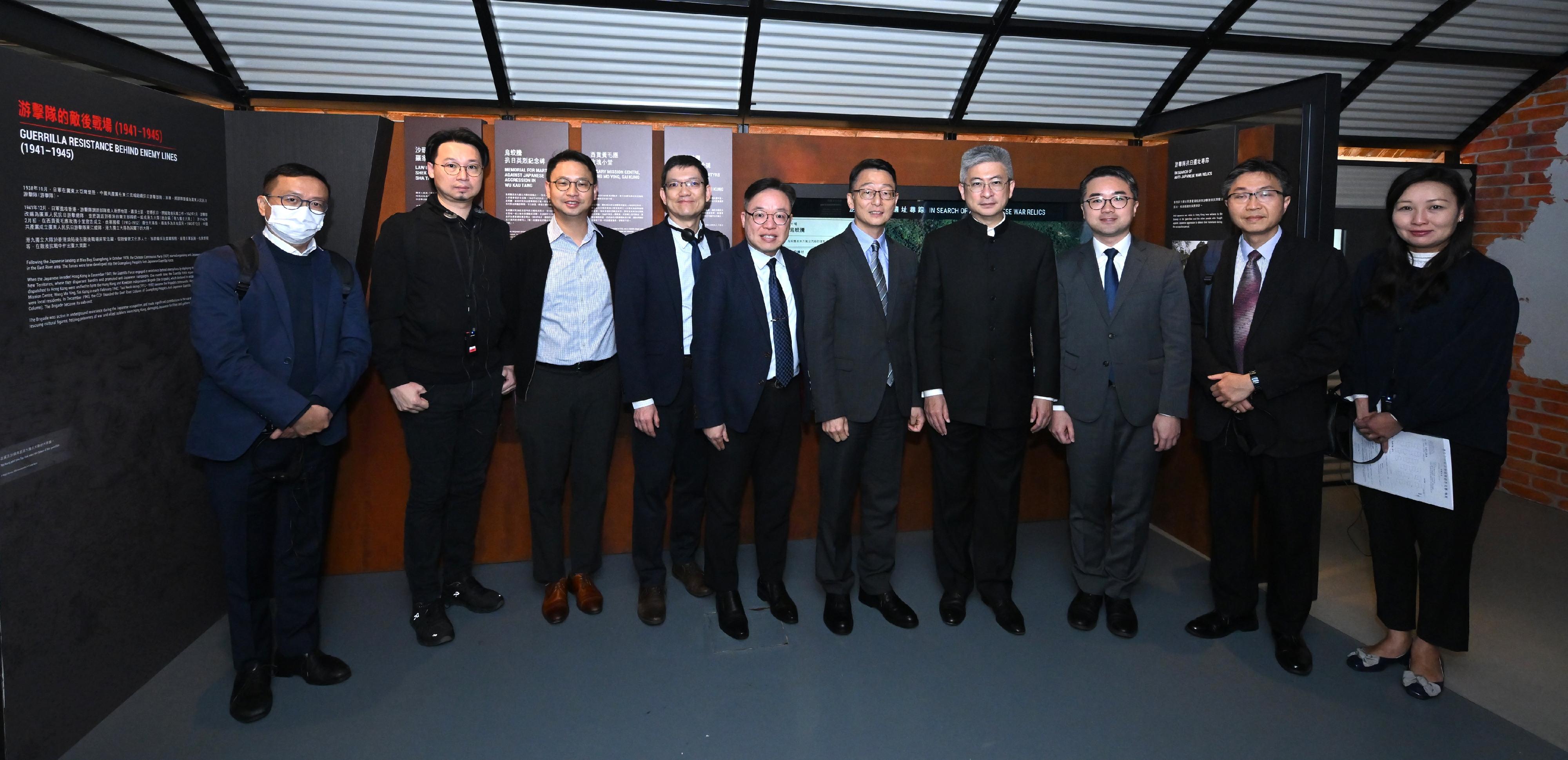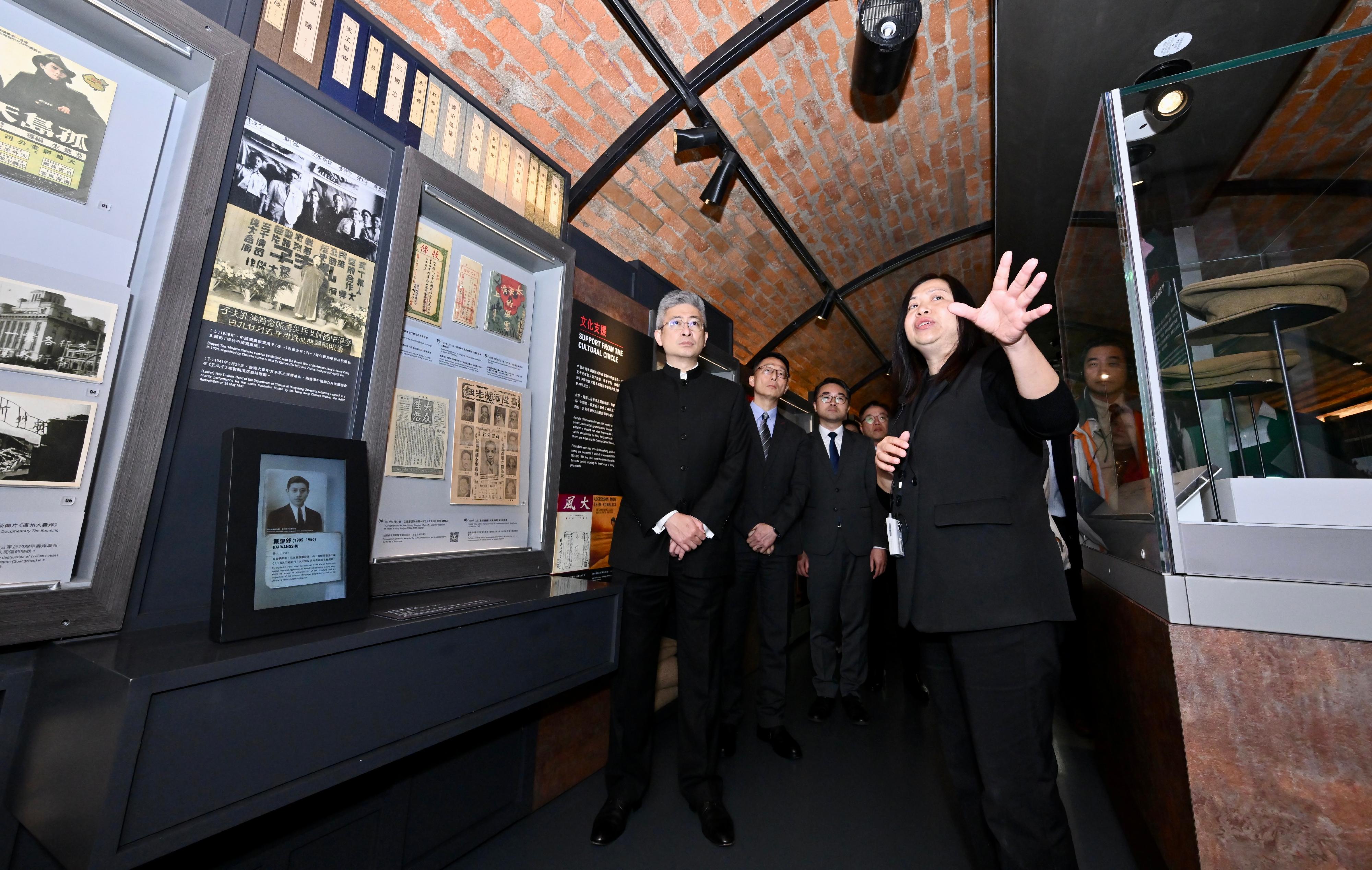Programmes Kick-off Ceremony for Chinese Culture Promotion Office (with photos)
​The Leisure and Cultural Services Department (LCSD) held the Programmes Kick-off Ceremony for Chinese Culture Promotion Office (CCPO) today (March 14), announcing the establishment of the CCPO to promote Chinese culture through planning programmes, exchanges and collaborations, with a view to enhancing citizens’ cultural confidence and national identity.
The kick-off ceremony was held at the Hong Kong Museum of Coastal Defence (HKMCD) today. Addressing the ceremony, the Acting Secretary for Culture, Sports and Tourism, Mr Raistlin Lau, said that the newly established CCPO would take up the important role of promoting Chinese culture and patriotic education through planning multifaceted activities with the LCSD’s rich resources in relation to Chinese history and culture. Teachers play a pivotal role in promoting and preserving Chinese culture. The Chinese History and Culture – Train-the-Trainer Workshops co-organised by the CCPO and the Education Bureau (EDB) are tailor-made for teachers. The workshops will cover Chinese history and culture, arts, technology, and intangible cultural heritage with a view to providing support for teachers to teach students of different ages and levels Chinese culture, thus enabling the inheritance of Chinese heritage. The CCPO and the EDB especially invited principals of primary and secondary schools to join the kick-off ceremony to commence the first event of the CCPO – Briefing Session for Principals on Teaching and Learning Series, and visit the HKMCD. The CCPO will continue to collaborate with the EDB to systematically provide more tailor-made activities through the Chinese History and Culture – Train-the-Trainer Workshops for teachers and students.
Other officiating guests at the ceremony included the Under Secretary for Education, Mr Sze Chun-fai; the Director of Leisure and Cultural Services, Mr Vincent Liu; and the Museum Director of Hong Kong Museum of History, Mr Ng Chi-wo.
To enhance the public’s understanding of the development and context of Chinese history and culture, the CCPO will collaborate with the Hong Kong Museum of History (HKMH) to launch the General History of China Exhibition Series. The first exhibition, namely “The Hong Kong Jockey Club Series: The Ancient Civilisation of the Xia, Shang and Zhou Dynasties in Henan Province” exhibition, will be held from April 3 to July 8, leading visitors to explore the origins of Chinese civilization through displaying important archaeological discoveries and artefacts from Henan Province that reflect the political, social, ritual and cultural lives during the three dynasties. Subsequently, the HKMH will stage exhibitions on historical relics of significant periods in chronological order. The series will conclude in 2029 with an exhibition celebrating the 80th anniversary of the establishment of the People’s Republic of China.
The CCPO will annually organise the Chinese Culture Festival starting from this year. Furthermore, the CCPO will also organise a diverse array of community engagement activities which allow members of the public to learn about Chinese culture through daily objects. For example, in one of the programmes, participants will learn about the history, culture and architectural features of different dynasties by visiting parks with rich Chinese cultural characteristics in Hong Kong.
The CCPO will also select Chinese culture-related talks and activities for live-streaming through its designated website and social media platform. Contents of some talks and educational resources of some exhibitions will be uploaded to its website, which will become an important platform and archive for learning Chinese culture.
For more information of the CCPO and details of its programmes, please visit www.lcsd.gov.hk/en/ccpo/index.html.




